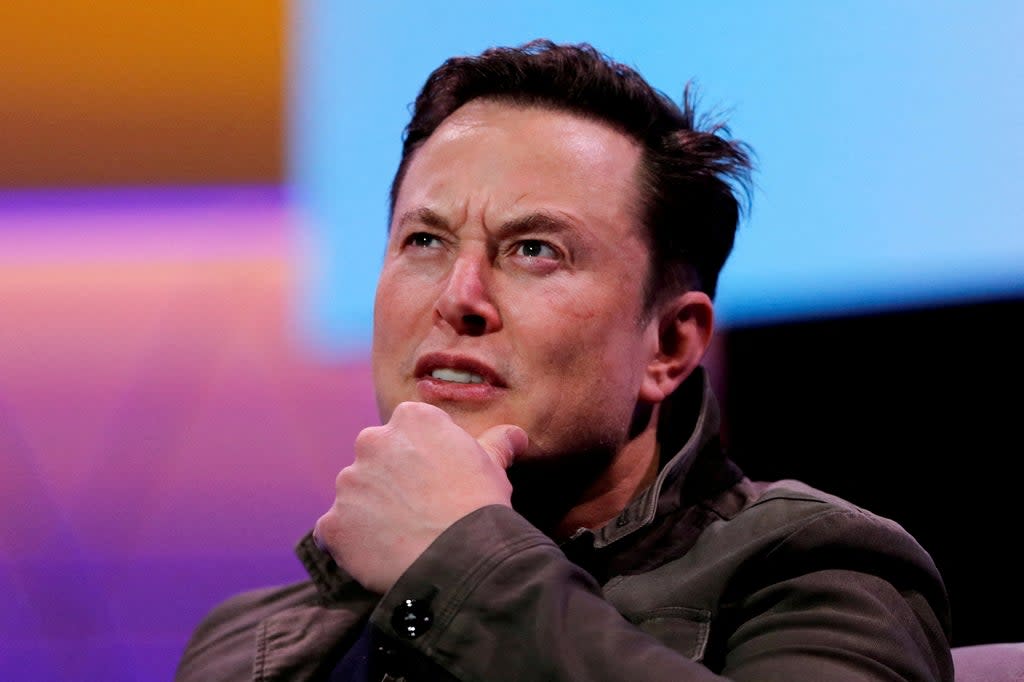Voices: The return of measles has more to do with Elon Musk than you think

- Oops!Something went wrong.Please try again later.
Some might say Twitter is already akin to a non-fatal case of that vicious childhood illness in terms of its impact on public discourse. Musk’s takeover has also sickened shares in Tesla, his car maker, which has seen billions of dollars wiped off its value. But I’m talking here about the real measles, a virus that in the early 1960s was killing up to 2.4 million people a year – mostly under-fives – but has been very successfully brought to heel through childhood vaccination. Until now.
Worryingly, it has been making a comeback. Covid-19, primarily a killer of the old, seems to have given it an undeserved leg-up. Unicef and the World Health Organisation (WHO) raised the alarm in a joint statement, which warns of a sharp spike in reported cases. They’re now up 79 per cent over the first two months of 2022.
This is a real cause for concern. We all know how contagious Covid is. Each new variant has outdone the last. The same is true of each new subvariant of Omicron. The little swine is an evolutionary Olympian; a steroid-fuelled Lance Armstrong of the microbial world. But it’s still in the silver medal position compared to measles, although the latest “stealth” Omicron is pushing it damnably close.
Measles is so contagious that, according to America’s Centres for Disease Control and Prevention (CDC), if one person has it, up to 90 per cent of the people close to that person who are not immune will also become infected. It is also Putinesque in its capacity for evil. Complications can include blindness, encephalitis (an infection causing brain swelling), diarrhoea leading to dehydration, ear infections, and even severe respiratory infections such as pneumonia.
Fortunately, the vaccine is tip-top. The Covid vaccines we have are good; the measles one is like giving LeBron James an unimpeded run at a basket with an orange ball. It’s a slam dunk, providing 95 per cent protection. Widespread vaccination means everyone gets covered. Even better: it’s cheap.
Trouble is, the pandemic has interfered with immunisation programmes. The combination of generalised disruption, increasing inequalities in access to vaccines, and the diversion of public health resources from routine immunisation are, say the WHO and Unesco, “leaving too many children without protection against measles and other vaccine-preventable diseases”.
This problem has been compounded by a human-created disease for which it seems there is no real treatment: the indulgence in murder and mayhem by the world’s depressingly large coterie of psychopaths doubling as political leaders.
The displacement of millions of people as a result of conflict and crisis in Ukraine, Ethiopia, Somalia and Afghanistan has further disrupted the immunisation of children. A lack of clean water and sanitation, along with overcrowding, which inevitably afflicts those fleeing conflict, has served to increase the risk of vaccine-preventable disease outbreaks among these people. Enough of this, and there’s your next pandemic – and the end of social distancing has only added to the risks.
The WHO and Unicef are, obviously, apolitical organisations, so there is one thing missing from their list of contributors to the measles resurgence. It is the rise in what’s commonly known as anti-vaxx sentiment, or vaccine scepticism if you’re being very charitable, and I see no reason to be charitable about the trolls and online goblins spreading the disease of disinformation.
We all know from whence much of this hails: social media. Which brings us neatly back to the world’s richest man and his corporate game-playing. Musk’s quixotic bid for Twitter, which has been accepted by the company’s board, is, he has claimed, motivated by his desire to champion free speech and Twitter’s role as a “digital town square”.
It should be said that he isn’t notably keen on having The Independent’s Andrew Buncombe in that square. Buncombe has been blocked by Musk. So has Public Citizen, a Washington DC-based watchdog group. Some free speech is, it seems, too much for the tycoon. It is still a wonderful thing, worth fighting for. But what about when it kills people?
To keep up to speed with all the latest opinions and comment sign up to our free weekly Voices Dispatches newsletter by clicking here
The rancid disinformation concerning Covid vaccines did that. You may have seen the videos of ailing patients recanting their vaccine scepticism from their deathbeds, too late for jabs to have any effect.
The measles vaccine hasn’t been immune from the anti-vaxx madness. Indeed, the highly effective and safe MMR jab, which also covers mumps and rubella, was how the insanity got started thanks to the myth that it could cause autism. This has been comprehensively debunked.
All this explains why a degree of moderation is necessary; why social media companies have to be prodded into taking a measure of responsibility for what is pumped out over their platforms. Just as traditional media does.
Musk hasn’t yet properly detailed his plans for his new multibillion-dollar toy. But if it includes tolerating toxic lies designed to undermine life-saving treatments in the name of “free speech”, you can file him under “bad actor”. Twitter, too.

